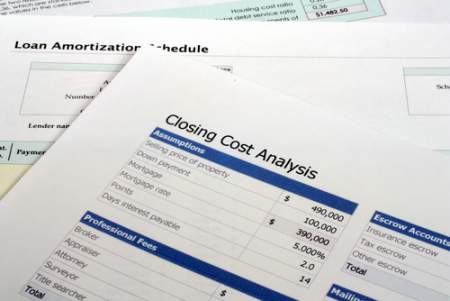Purchasing a home is one of the most exciting and important transactions most people will make in their lifetime. The process can be complicated and fraught with decisions and choices that may impact final costs. It’s important to know what you are getting into and how much house you can comfortably afford. One of the factors going into figuring all of this out is the closing costs attached to buying a home.
💲 What are closing costs?
 In addition to a down payment, legal fees and monthly mortgage payments, there are a number of further costs to take into consideration when purchasing a home. “Closing costs” can typically add another 2 to 5% to the purchase price of a home. They are calculated just prior to the final steps in purchasing a property. Payment of these costs by the buyer “closes” the deal so that ownership of the residence may be legally transferred.
In addition to a down payment, legal fees and monthly mortgage payments, there are a number of further costs to take into consideration when purchasing a home. “Closing costs” can typically add another 2 to 5% to the purchase price of a home. They are calculated just prior to the final steps in purchasing a property. Payment of these costs by the buyer “closes” the deal so that ownership of the residence may be legally transferred.
The lack of precision in calculating closing costs until close to the end of the purchase process may lead to some sleepless nights for a home buyer. A good realtor will go through likely scenarios with you to give a sense of how much money to set aside for closing. It’s sometimes possible to roll closing costs into the cost of your mortgage, though this may affect the terms and schedule for monthly mortgage payments. And in some instances, it may be possible to negotiate for the vendor to pay some or all of the closing costs, though this may also result in a higher purchase price.
💵 What are closing costs based on?
Closing costs can vary depending on the purchase price of the home, its location and local regulations and bylaws. Land transfer taxes are calculated using the purchase price for example. In some areas, costly inspections may be required; in other jurisdictions not necessarily. A knowledgeable local real estate agent should have a good idea of what will be involved. Even so, prepare for surprises.
An itemized list of closing costs is typically offered to the prospective buyer twice. The first is an estimate of anticipated costs and it’s triggered when you apply to make an offer. A second, often substantially different list, will arrive closer to the closing date. It can be different depending on the circumstances of the sale. For example, certain legal and administrative costs and disbursements will increase if a purchase or property title is not straightforward for some reason.
And even if things remain simple, additional costs can add up. Don’t be afraid to challenge each item or ask for an explanation if the initial estimate and the final closing cost total are far apart. Some legal and financial professionals expect the buyer to assume the cost of every courier delivery or postal charge. They may be persuaded to remove some of these petty costs with push back.
It’s wise to estimate generously and free up cash ahead of time to avoid last minute financial scrambling.
💰 What are typical closing costs for buyers?
 There is a large and varied array of costs that may be presented at closing. Some may cost a few hundred dollars, but others can add thousands to the final tally. Common closing costs can include, but may not be limited to, the following:
There is a large and varied array of costs that may be presented at closing. Some may cost a few hundred dollars, but others can add thousands to the final tally. Common closing costs can include, but may not be limited to, the following:
- home inspection fees
- bank fees associated with your loan
- home appraisal fees (often assumed by lender)
- the deposit due when you make an offer to purchase
- land transfer taxes – these can vary depending on where you live and on the purchase price of the home
- Home Owners Association (HOA) fees – if these apply they are not optional and are due at closing
- broker fees – though these are typically assumed by the seller
- legal fees for reviewing purchase agreements and the preparation and filing of documents
- title insurance: you have to pay this to protect your lender from errors on the title to your home. Owner’s policies that cover you in case there’s an inaccuracy on the title might be optional.
- homeowners’ insurance may be required by your lender
- septic and well inspections may be mandatory for rural properties
- property taxes – not always due immediately but inevitably
- prepaid utilities
📝 What closing costs are tax deductible?
You don’t get much of a tax break on closing costs when you purchase a home. But be sure to keep records of each item to be paid – because a few can be claimed. In the year of purchase, for example, mortgage interest and some property taxes may be tax deductible.


